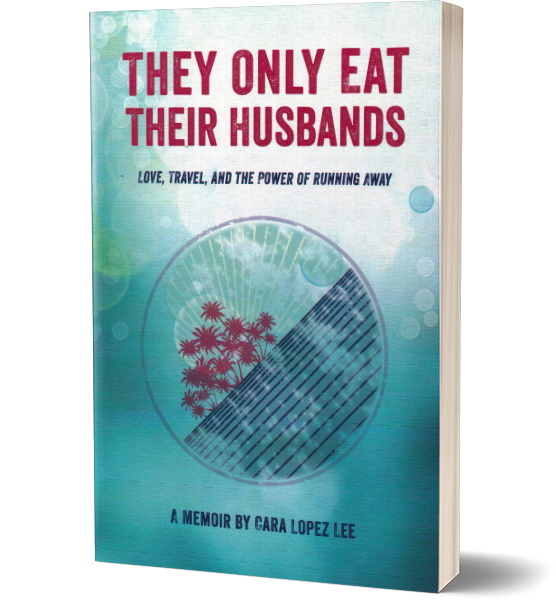April 5th, 2008
Guangzhou, China
Yesterday, Fiona Zhu and I went to the Haizhu Wholesale Market, a giant warehouse where hundreds of stalls sell the trinkets, baubles, kitsch and downright junk of a consumer society. Mainly we’re talking about the things no one actually needs: plastic Godzillas, hand-painted theatrical masks, fake fingernails, plastic flowers, fabric-covered keepsake boxes, fake-jade statues, fine China tea cups, not-so-fine China tea-cups, and trios of figurines meant to represent Joy, Luck and Prosperity. Zhu Zhu had been to this market many times. “Sometimes I don’t buy anything, just look around.”
We spent some three hours trolling the Haizhu Market’s aisles for gifts I could fit into my bag for the flight home. I bargained, or rather Zhu Zhu bargained for me, to buy: a black shirt with an embroidered black dragon for my husband, bamboo combs with mythological Chinese maidens painted on the handles for my girlfriends, compact mirrors with graceful colored metal designs for female relatives, and painted turtle figurines with shells that opened up to fit the tiniest of treasures inside for my little sister and me.


The Haizhu Wholesale Market is a giant warehouse where hundreds of stalls sell the trinkets, baubles, kitsch and downright junk of a consumer society.
After shopping we went back to the Shang Xia Jiu pedestrian shopping street, where we had sushi at the popular Ichiban restaurant. We sat at one of those sushi bars where the selections glide around and around on a small conveyor belt, turning eating into a sort of Lucy and Ethel game: “Speed it up!” The sushi was delicious, and a nice break after more than a week of Chinese food, much as I love it.

Shang Xia Jiu was jammed with more people than Times Square, thanks to the Qing Ming Holiday.
After lunch, we walked down Shang Xia Jiu again, which was jammed with more people than Times Square, thanks to the Qing Ming Festival. Qing Ming is a day to revere ancestors, and many people spent it burning fake money at family tombs, but it seems more people revere their ancestors by burning real money at the mall. Zhu Zhu explained that, although the holiday is centuries old, this is the first year that China’s communist government declared this day as an official public holiday. Much of China’s youth took advantage by doing the same thing America’s youth do with a day off: shopping. The bargain bins in the clothing stores were a feeding frenzy of fashion-conscious young women.

The bargain bins in the clothing stores were a feeding frenzy of fashion-conscious young women.
In the middle of the street stood a less fashionable site: a man in a rooster costume tooting a small horn to lure passersby. Zhu Zhu told me he was selling “Oliver.” I might have guessed what she meant sooner, but I found it hard to believe that a guy would dress up like a rooster to sell olives, or that this practice would be so common that Zhu Zhu would recognize it immediately. She bought a small packet and I tried one. The olive was candied and tasted like overly sweet relish; I would have spit it out if I weren’t worried about being rude.

I found it hard to believe that a guy would dress up like a rooster to sell “Oliver.”
We escaped the crowds via one of the city’s many cobblestone alleys, some of which beckoned with old-fashioned Chinese moon gates. We were searching for great houses of the former merchant class of Old Canton. We found one huge complex of the sort seen in the lush movie, Raise the Red Lantern. This one had been transformed into a restaurant, called Pan Xi Jiu Jia. The exterior was gray brick, with a sloping roof of green ceramic tile triangulating into sweeping angles.

We escaped the crowds via one of the city’s many cobblestone alleys, some of which beckoned with old-fashioned Chinese moon gates.
We passed through the restaurant lobby, into a large courtyard, centered with a small but impressive pond full of swarming, leaping koi. The pond was bordered by gnarled black rock and hanging trees, and bisected by a covered bridge. Traditional red lanterns were strung along the bridge, and along the compound’s many pathways.

Traditional red lanterns were strung along the bridge, and along the compound’s many pathways.
The main house surrounded yet another courtyard, dominated by a huge, 184-year-old banyan tree. The banyan’s limbs spread over both wings of the two-story house – creating shade, or blocking the sun, depending on your point of view. Just beyond the entire great house sat lovely Liwan Lake.

The main house surrounded yet another courtyard, dominated by a huge, 184-year-old banyan tree.
We discovered that high tea was available here, but it was already past teatime, about 4:30. So we left to begin the hour-long walk back to my hotel.
As we walked, Zhu Zhu told me about an old adage concerning women from the Xiguan district, where the great house stood. Women from Xiguan were considered the prized beauties of all Guangzhou. The daughters of Xiguan’s famed and wealthy merchant class were known as “Miss Xiguan,” and sometimes beautiful women still receive this appellation. Meanwhile, the men of Dongshan district once represented the city’s most powerful political families. Those men sought wives from Xiguan. “Mr. Dongshan and Miss Xiguan,” Zhu Zhu called them, names that stood for the coveted combination of “Wealth and Beauty” that once defined upper class society in Old Canton.
I suggested that perhaps “Miss Xiguan” was not naturally more beautiful than “Miss Anywhere Else,” that maybe money was what made such women attractive to potential mates. “Or maybe money bought those things that help make a woman appear more to advantage, like beautiful clothes.”
“No hard work, so have nice hands,” Zhu Zhu suggested.
We laughed, agreeing that money could contribute to the illusion of beauty. But thousands of women in today’s Guangzhou apparently believe the same illusion can be bought in the bargain bins of Shang Xia Jiu.




